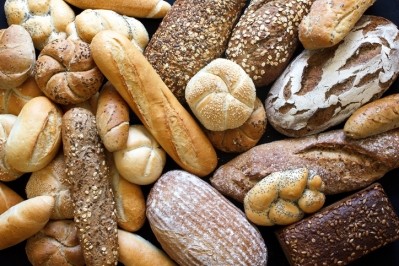FOMO drives Gen Z food waste: Why under 25s don't love their leftovers

An EIT Food-funded project, Cook Clever, surveyed 18- to 25-year-olds about their food habits. Participants reported FOMO, impulse food cravings and a feeling that they regularly need to try new and different meals shaped their consumption decisions.
This adventurous approach to cuisine means young people are put off eating leftovers or meal planning, an outlook the researchers suggested could potentially contribute to food waste.
“What we’ve found from our studies with generation Z is that they have specific drives and habits when it comes to food, they want new and exciting meals and are very opposed to suggestions of being more resourceful with leftovers. This has implications when we are thinking about how to get them to engage in less wasteful behaviour,” observed Dr Natalie Masento, an applied psychologist and lead researcher on the project from the University of Reading.
Survey participants also highlighted environmental circumstances influence their ability to waste less. Lifestyle factors such as a reliance on shared kitchens, limited access to large supermarkets and ‘demanding schedules’ also made cooking and regular food routines more challenging. Convenient options, such as deliveries or impulsive dinner purchases, were therefore more appealing.
Food waste efforts don’t appeal to gen Z
As a result of this unique generational approach to food and diet, traditional approaches of food waste messaging and waste reduction initiatives fail when it comes to youth appeal.
“We’ve known for some time that household food waste needs to be reduced, in recent years we’ve seen a growing number of initiatives such as community fridges and food sharing apps to try and tackle the issue which is a good first step, however these initiatives are not taking into account different age groups and their specific challenges when it comes to food,” Dr Masento noted.
“Traditionally there has been a focus on planning food and using up ingredients and leftovers, but this approach may not be the best way to encourage generation Z to reduce their food waste if they want something impulsive and new for every meal.”
With current food waste efforts falling on deaf ears amongst the 18- to 25-year-old age group, Dr Masento said that ‘specialised’ efforts to change the consumption habits of the younger generation could help further the food waste agenda.
“When we are working on initiatives and solutions to reduce food waste we can consider a more specialised approach for this age group, and we hope in the next phase of our project we can do just that.”
‘Generation green’?
Currently, one-third of the food produced globally is wasted while around 690m people go to bed hungry each night.
In the EU, 70% of food is wasted at a household level and, in the UK alone, over seven million tonnes of food is wasted in consumers’ homes.
Food waste is a crucial environmental issue contributing 8% of all manmade greenhouse gas emissions – more than the entire transport industry in 2019.
Previous studies suggest that Generation Z is more environmentally conscious than their parents and grandparents. For instance, earlier this year digital research company First Insight found 73% of this age group claimed they are willing to pay more for sustainable products.
Given this reputation, Dr Lilly Da Gama, a food waste specialist and researcher on the project from the University of Reading, said that the Cook Clever findings could seem somewhat counter-intuitive.
“With Gen Z being framed as the sustainability generation we might have expected to see a greater level of engagement with in-home activism, such as trying to reduce food waste,” she noted.
However, it would seem that support of environmentalism comes up against reality when it comes to action on food waste. “We can see from the discussions that there is some level of consciousness towards minimising food waste, however these results suggest that a host of personal desires, preferences and day-to-day issues are preventing a greater level of engagement with the issue.”
Cook Clever is a research project that brings together psychologists, consumer scientists, food industry representatives and app developers across Europe to try and tackle the growing problem of household food waste.

















